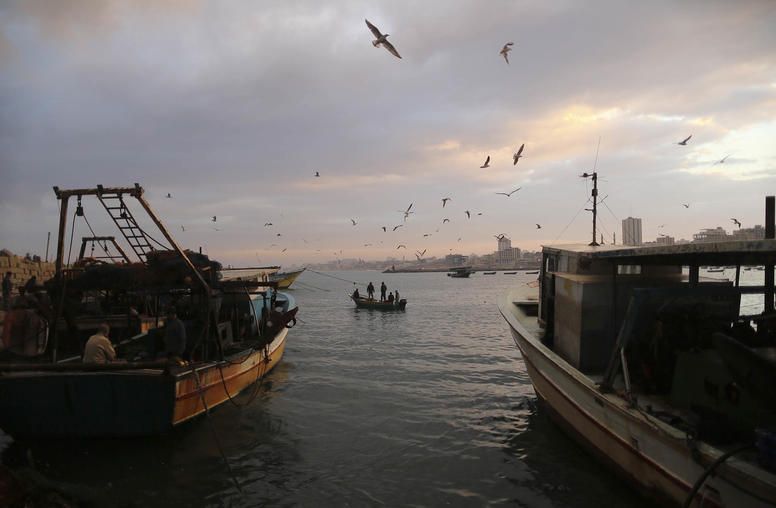Prospects for a Democratic Revolution in Egypt
USIP’s Dan Brumberg provides updated analysis of the current crisis in Egypt. Are there parrallels between Iran’s Green Revolution and the protest in Tunisia? Will Egypt's military take a side?
January 31, 2011
 USIP’s Dan Brumberg provides updated analysis of the current crisis in Egypt.
USIP’s Dan Brumberg provides updated analysis of the current crisis in Egypt.
- Everyone is talking about and tweeting about the role of social networking in the Egypt crisis. Is there a risk that we overdo it and make the Internet too omnipotent and over estimate its potential to cause a revolution?
- Are there parallels between Iran’s Green Revolution and what has happened in Tunisia and now in Egypt? They are all different cases, but are there similarities? If so, why hasn’t the Iran situation sustained in changing the regime?
- If the military takes over—does that bode well or poorly for the aims of the protesters?
- Read additional perspectives >>
Everyone is talking about and tweeting about the role of social networking in the Egypt crisis. Is there a risk that we overdo it and make the Internet too omnipotent and over estimate its potential to cause a revolution?
The Internet created the crucial medium through which young Egyptians were able to envision a collective challenge to the regime: safety in numbers. The regime has always counted on apathy, but the images of self-empowerment had a galvanizing and snowball effect.
But, this dynamic of collective action is a necessary but far from sufficient condition: a democratic revolution will require leadership, and it will require a capacity of Islamists and non-Islamists to hammer out a common vision of reform -- a process that itself demands leadership. The Internet can help in this regard, but is not crucial.
Moreover, ultimately, to move from rebellion to revolution you need the Egyptian army to defect. Certainly mass mobilization may increase this prospect, because it raises the cost of repression. If the Internet has helped facilitate that mobilization in ways that have perhaps changed the calculus of the military (which is yet to be seen), that calculus will ultimately be driven by other fundamental considerations within the military.
So the Internet is important, but it is not the silver bullet to the heart of Egyptian autocracy.
Are there parallels between Iran’s Green Revolution and what has happened in Tunisia and now in Egypt? They are all different cases, but are there similarities? If so, why hasn’t the Iran situation sustained in changing the regime?
The Green Revolution represents, for the most part, the mass mobilization of the urban middle classes in Iran. I would say the same thing applies to Egypt. Moreover, in both cases, education and development, under the umbrella of autocratic states, have done much to enlarge this middle class.
But the political systems are very different: there is a far more elaborate system of mobilization and control in Iran, and what is more, it is blessed and enforced by a kind of semi-theocracy led by a Supreme Leader whose authority, he claims (and not a few Iranians believe) comes from God. This religious base of authority remains a serious impediment to democratization. Moreover, and moving from this previous point, while Iran's leaders face many opponents, they have used state institutions to sustain a base among the rural and urban poor. Furthermore, they have at their disposal, not the military, but a mass praetorian guard – The Revolutionary Guard and “Basij" whose numbers, in the millions, can be mobilized quickly. So there are simply huge internal constraints in Iran.
Finally, Iran lacks the external constraints present in Egypt. Furthermore, Mubarak is an ally of the U.S. This could work both ways, depending on how the U.S. plays it. if the U.S. presses the Egyptian army to do the right thing, the process may move forward in Egypt. We have no similar influence in Iran, obviously.
If the military takes over—does that bode well or poorly for the aims of the protesters?
IF the military should support the protesters, that is crucial. If they support the regime, the game could be over pretty soon. It is not a matter of taking over: it is a matter of whose side the military takes.
Additional Perspectives
- USIP Tracks the Unfolding Situation in Egypt
Check here for a comprehensive look at the situation in Egypt. - Former U.S. Ambassador on Initial Days of Protest
By Daniel C. Kurtzer, former U.S. ambassador to Egypt - Shibley Telhami on Egypt
By Shibley Telhami, former USIP Board Member (2000-2002) - Egypt Today: Historical Context of the Protests
By Qamar-ul Huda, senior program officer, Religion and Peacemaking Center of Innovation - Read more: USIP Tracks the Unfolding Situation in Egypt



